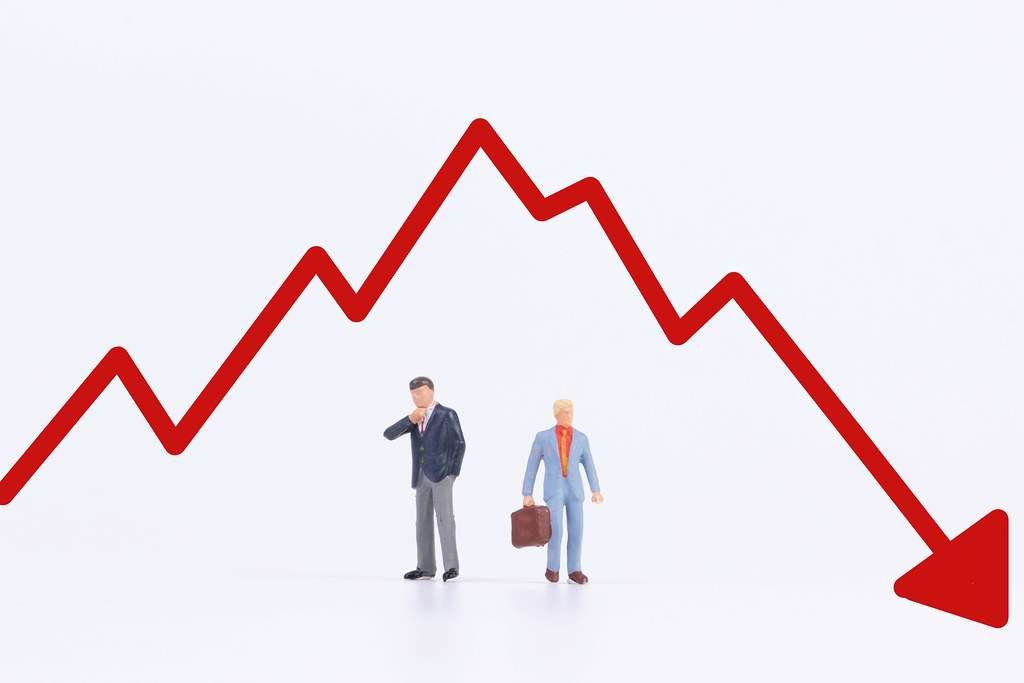
WHAT CAUSES A STOCK TO DROP?
Imagine a scale. On one side, you have people buying stock. On the other hand, people selling. If more people sell than buy, the scale tips, the stock price falls. That’s supply and demand. If the whole market falls? Well, that’s a lot of companies seeing their stock prices drop.
The stock market is like a roller coaster, its values can drop for several reasons. The big reason is fear and uncertainty about what’s coming. The future can scare people. In the past two years, COVID-19 has scared many people. This scared feeling has made the stock market move up and down a lot. But if you look at the whole two-year pandemic, you’ll see, a lot of stocks actually rose.
Changes in people’s expectations about the future can cause stock prices to fall temporarily. For example, if the Federal Reserve Board predicts higher-than-expected interest rates, the bank may react negatively. People worry about limited income, which can lead to trafficking. Too many sellers in the market can be the result of a domino effect that begins when more people start selling.
What happens to your money?
At the end of 2021, the account values of many people were high in the universe of investment, which made investors feel richer than ever in life.
But then January 2022 hits differently; the S&P 500, a stock market indicator, goes down from its highest point to more than 10%. This happens because there were worries that the Federal Reserve might increase the interest rate more than expected. Although at the end of the month it dropped over 5.3%, due to the rapid fall in its value, many investors get scared that a part of their investment accounts has vanished into the air.
Let’s explain what happens when you buy stock in the whole stock market. For instance, you purchased 100 shares of the fund when it was trading at $100 per share, for a total of $10,000. Suppose then that the market value drops over $20 per share.
As you owned the 100 shares, they dropped over $80, which means that your investment would decrease to $80,000.
So your investment depends on the market value; if the stock goes down, the shares you bought also decrease. Investing involves many risks, but it’s smart to focus on long-term fluctuations, as evidence shows that it is wise to overlook short-term fluctuations.
How to prepare for a stock market crash?
Getting ready to face the situation when the stock market crash, depends on a variety of factors, like your time horizon and how much risk you can bear. By setting your goals, it is easy for you to make a wise decision when stock goes down.
If you’re a long-term investor with a horizon of 10 years, your best approach is to do nothing at all. With such a 10-year horizon, there is less probability of losing money, and that probability decreases as your investment horizon time increases. In other words, short-term market movements are insignificant when viewed in the context of long-term investment.
Moreover, if you’re close to retirement, a good strategy may be wise for you. If you are heavily invested in stocks and the market goes down near your retirement, You might need to sell all stocks at a loss to cover living expenses. Of course, it is not ideal. If you are not extremely wealthy, taking too much risk will put your portfolio in danger.
The most simple way to prepare is to, when retirement approaches, start building up your cash reserve and reduce the risk of your investment. Put another way, you should consider shifting some of your stock investment to bonds. Cash and bonds may not minimize returns, but they can act as insurance if the market goes down when you retire.
Market crashes are normal:
If we take a look at history, we have come to know that markets move in a cycle. Stock market crashes are common and are expected by investors. Stocks may overvalue during market cycles, which can result in corrections and selling. On the other hand, they might oversell, which would present a chance to purchase.
Along with that, it is a very crucial part of investment to control your emotions when the stock market crash. Don’t panic when some bad news comes to you. To overcome this situation, avoid checking your portfolio frequently and stick to your long-term investment strategy. Making emotional decisions when the market is declining can result in less than ideal outcomes.




